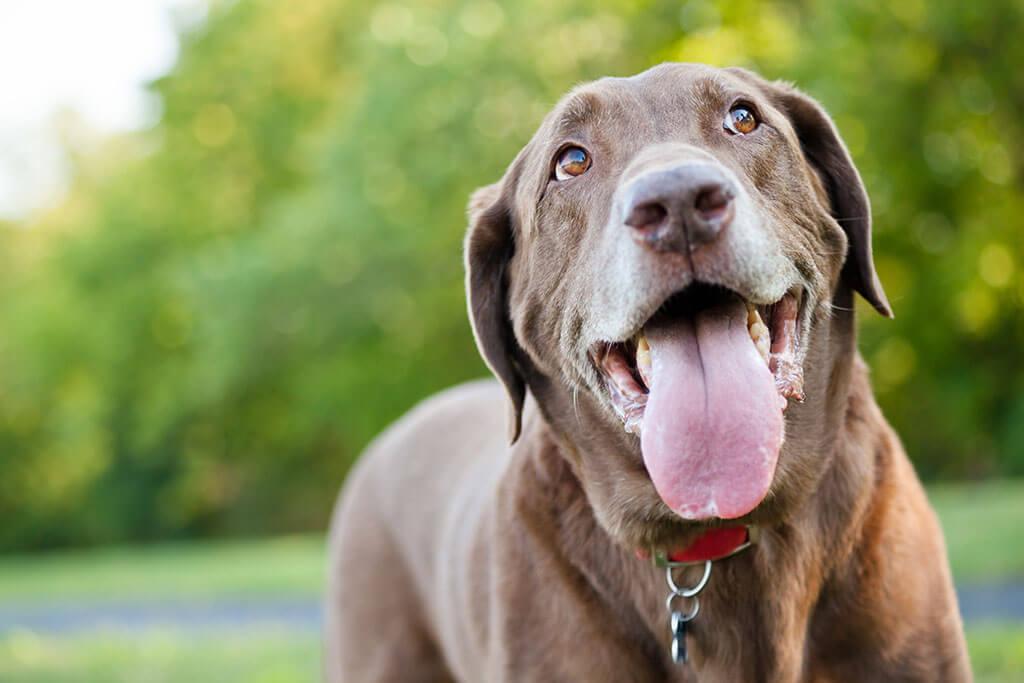In this blog, we learn why dogs pant! We’ll discover why dogs pant when scared, when is panting normal, and what could be causing your dog to pant too much. Read more to find out if your dog’s panting is normal or a sign of something that needs your attention.
Why Do Dogs Pant? Everything You Need To Know!

Panting is a pretty normal dog behavior. As a puppy parent, you’ll probably notice your pup panting after a nice long walk, whilst playing with their favorite toys or on a hot, summer’s day. However, it’s when you find your dog panting with additional, concerning symptoms, it could be a sign that your dog is scared, stressed, or unwell…
Why Do Dogs Pant?
As said above, typically your dog will pant to cool themselves down when they’re too hot – either from exercise or the warm weather. But, sometimes, your dog could be panting due to something completely different – which is why it is very important as their caregiver to know when panting is normal – or not.
Take a look at some of the most common reasons why dogs pant;
Dogs Pant To Cool Down

Did you know that dogs don’t sweat like us? Where we produce sweat from our skin to cool down, our canine companions cool themselves down in other ways, including panting. Although they can sweat a little bit through the pads on their paws, it isn’t enough to cool their body temperature down, whereas panting can do the trick!
But how does panting cool your pup down? Well, as your dog pants, mouth wide open with their tongue hanging out, they can quickly transfer the hot air in their lungs with the cooler external air surrounding them. This process actually causes the evaporation of water from inside their mouths, respiratory tract, and on their tongue to speed up, helping to regulate their body temperature – cooling them down to a more comfortable state.
Feeling Scared Or Anxious
Do dogs pant when scared? The answer is, yes. If your pup isn’t hot or hasn’t been exerting themselves, it could mean they’re panting due to fear, anxiety, or stress. Also known as behavioral panting, this type of panting can often happen during a trip to the vet, loud noises such as fireworks or music (especially parties with lots of people), or anything that may trigger your pooch’s anxieties.
Normally, if your pup is panting because they’re scared, it will often be accompanied by other expressions of anxiety; pacing, shaking, hiding, yawing repetitively, or whining.
A Brachycephalic Breed
Did you know that a dog with a short, squashed snout and flat face is called a brachycephalic dog? So, if your fur baby is a Boxer, Boston Terrier, French Bulldog, British Bulldog, Pug, or of a similar facial structure, your pup falls into this grouping – and could be prone to more panting than other breeds due to Brachycephalic Airway Syndrome (BAS).
BAS or BOAS (brachycephalic obstructive airway syndrome) happens to the above breeds, due to the formation of their skull, which can cause breathing difficulties as their upper respiratory tract is narrowed – which, in turn, can cause panting.
Why Is My Dog Panting So Much?
Seasonal Allergies
Just like us, our pups can experience seasonal allergies and allergic reactions – which can be extremely dangerous. Whether caused by something they have eaten, an environmental allergy, or a reaction to new medication, your dog may pant if they’re struggling to breathe due to the above. If you notice your pup panting, vomiting, experiencing diarrhea, or acting lethargic, please visit your vet.
Obesity
Over-panting is extremely common in overweight dogs. When your dog is carrying more weight, it can make it difficult for your pup to get oxygen into their bloodstream.
Heatstroke
Particularly during the hot summer months, our pups can suffer from heatstroke – just like us! One of the main symptoms of heatstroke in dogs is excessive panting and difficulty breathing, along with; high body temperature, rapid heartbeat, glazed eyes, and a bright red tongue or gums. If you suspect your dog has heatstroke, move them into the cool area with lots of shade or inside, out of the heat.
When it is the height of summer or if you live somewhere that is regularly warm, the best thing you can do is walk your pup as late in the day as possible – once the sun’s intensity has eased. This will help protect your pup from burning the skin on their paws and will help your dog to avoid heatstroke. Plus, always make sure your pooch has access to water!

Pain
Our furry best friends are very good at hiding pain (something they have learned from their wild ancestors). Being a pack animal, pain is a sign of weakness, so many dogs will hide pain to not let other dogs know they’re vulnerable. However, this makes it very hard as a pet parent to know when your dog needs help…
When your pup is panting more than usual, it could be a sign that they’re in pain. If you find your dog panting at night, instead of sleeping and resting, they may be suffering in silence. Try to see your vet as soon as you’re able and get your pup checked out.
Heart Problems
Sudden and excessive panting could actually be an indicator that your pup’s heart may be in danger. Many heart conditions and illnesses can make it difficult for your dog to catch their breath – causing labored or rapid breathing. If the root cause of your dog’s panting is their heart, they will also become very lethargic, weak, and noticeably unwell.
Sources
Author Williams, Krista BSc, DVM and Yuill, Cheryl, DVM, MSc, CVH “Brachycephalic Airway Syndrome in Dogs” VCA Hospital https://vcahospitals.com/know-your-pet/brachycephalic-airway-syndrome-in-dogs
 B
B



